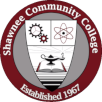 Operating Standard
Operating Standard
Type: Administrative
Responsible: VPAA
Related Policies: A2100 Curriculum Excellence
Linked Operating Standards: A2100.00, A2100.05, A2100.10, A2100.15, A2100.20, A2100.25, A2100.30, A2100.35, A2100.40, A2100.45, A2100.50, A2100.55, A2100.60, A2100.65
Related Laws: None
Related External Standards: Council of Regional Accrediting Commissions (C-RAC), Worldwide Instructional Design Systems (WIDS), Competency-Based Education Network (C-BEN) ICCB Rules Section 1050
HLC Criterion: 3A3A
The institution maintains learning goals and outcomes that reflect a level of rigor commensurate with college-level work, including by program level and the content of each of its educational programs.
, 3D3D
The institution provides student support services that address the needs of its student populations, as well as the teaching resources and infrastructure necessary for student success.
, 4A4A
The institution’s administrative structures are effective and facilitate collaborative processes such as shared governance; data-informed decision making; and engagement with internal and external constituencies as appropriate.
, 4B4B
The institution’s financial and personnel resources effectively support its current operations. The institution’s financial management balances short-term needs with long-term commitments and ensures its ongoing sustainability.
, 4C4C
The institution engages in systematic strategic planning for quality improvement. It relies on data, integrating its insights from enrollment forecasts, financial capacity, student learning assessment, institutional operations and the external environment.
Definitions
Competency-Based Education Program-any program of study that (a) substantially permits students to progress at their own pace, (b) consists mostly of competency-based educational courses, and (c) has been recognized as such by an accrediting body such as the Higher Learning Commission.
Competency-Based Education Course-possesses the following characteristics:
- Defines learning outcomes as specific competencies.
- Links these competencies to clear performance standards for demonstrating mastery.
- Allows students to progress at their own pace by showing they have achieved the competencies.
- Awards credit only for high-quality performance on carefully designed assessments.
- Requires students to achieve all competencies to earn credit.
Well-Formed Competency-describes a Measurable, Observable, Valuable Skill (M.O.V.E.S.) that enable persons to flourish in the game of life, which we all play to survive and thrive in the modern world.
Measurable-if and only if it can be evaluated reliably by a third party through the use of a measuring instrument such as a rubric. Examples of measurable skills include: writing grammatically correct sentences in the English language; calculating the area of a triangle from the length of its sides; converting between imperial and metric measurements; recognizing the flora and fauna native to a region by visual inspection; distinguishing between stylistic genres of art and music.
Observable-if and only if someone demonstrating that skill can be readily distinguished from someone trying and failing to demonstrate that same skill by a subject matter expert in the kinds of real-life circumstances where the skill is typically utilized. Examples of observable skills include backing a truck into a parking space, starting a fire using flint and tinder, and balancing a budget with an Excel spreadsheet.
Valuable-facilitates excellence in employees, students, or subject matter experts. Such skills include, but are not limited to:
- Employability-increase job opportunities.
- Profitability-boost earning potential.
- Indispensability-make one hard to replace.
- Practicality-have real-world application and can be put into practice for gainful purposes.
- Collaboration-enable effective work in various settings.
- Creativity-facilitate innovation and self-expression.
- Relevance-align with industry needs.
- Efficiency-improve productivity and reduce costs.
- Critical thinking-improves problem-solving and decision-making.
- Communication-the ability to clearly explain complex ideas.
- Influence-increase social status, power, or the ability to generate change.
- Problem-solving-foster innovation and adaptability.
- Risk reduction-prevent mistakes.
- Versatility-enable the handling of diverse tasks.
- Technological adaptability-embracing long-term technological trends.
- Self-directed learning-a love of lifelong learning.
- Caretaking-facilitating the flourishing of humans, animals, plants and other lifeforms.
- Ethics-professional integrity and adherence to standards.
Performance Standard– observable and measurable assessment strategies and criteria. Performance standards consist of a summative assessment strategy and at least one criterion.
Criteria- provide the basis for answering the question, “Did the learner achieve the outcome?” They describe important characteristics or expectations for evaluating the learner’s performance of an outcome. In the WIDS application, criteria form the basis of a rubric or checklist used to evaluate the outcome.
Statement
We are committed to providing high-quality education, training, and services that are accessible, affordable, and promote lifelong learning. To further this mission, we are developing competency-based education (CBE) programs designed to enhance access, affordability, and opportunities for continuous learning. Through CBE, we aim to expand program capacity, shorten the time required to earn nationally recognized certifications, and promote equity by increasing access for underserved and non-traditional students. Our CBE programs are built around carefully crafted competencies, ensuring an intentional, well-structured curriculum that equips students with the skills and knowledge they need for success.
Framework for Ensuring Quality Learning
SCC has built a framework for quality learning into the statement above by ensuring that all CBE programs are centered around well-formed competencies that align with and support the college’s mission. To maintain program quality, the college will also implement the following practices:
- New CBE programs will be developed from existing programs that already meet students’ needs and align with the college’s mission, when a suitable parent program is available.
- CBE curricula will be designed in collaboration with credentialed subject matter experts and validated through consultation with regional workforce advisory panels, as appropriate.
- CBE curricula will undergo regular review with workforce advisory panels or relevant subject matter experts.
- CBE programs will define measurable outcomes (e.g., national certifications, employability, or graduate income) in foundational documents (such as WIDS or accreditation applications) and track them over time. Where applicable, we will compare CBE program performance with their traditional counterparts.
| Change Log | Governance Unit: Academic Affairs Council |
| Date | Description of Change |
| 9.26.24 | Initial Adoption |
